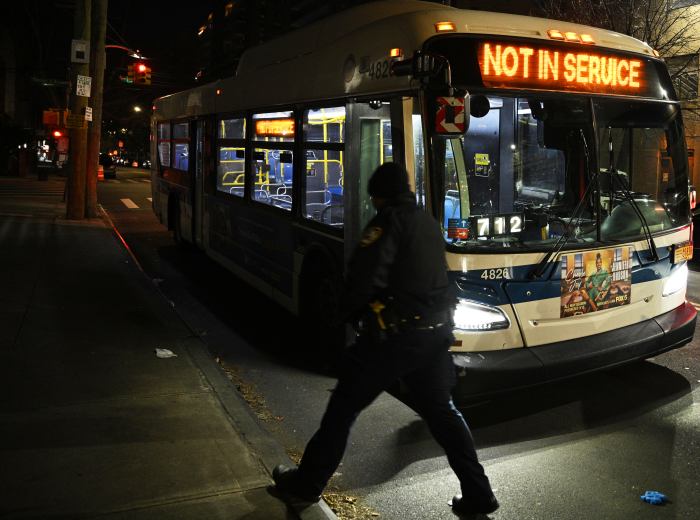The planned rezoning of a significant portion of Jamaica Hill to curb over-development has a civic association cheering but some immigrants in the neighborhood complaining they were left in the dark.
Last Wednesday, in a 26-3 decision, Community Board 8 voted in favor of contextual zoning changes to 28 blocks in the central Queens neighborhood, which comprises 563 lots of mostly residential homes. The vote was the culmination of a more than four-year crusade by the Jamaica Hill Community Association to keep development in character with the majority of the neighborhoods homes, which are one- and two-family structures.
The wide margin in the vote, though, belied the heated meeting that took place before the roll call. Those against the zoning switch, mostly immigrant homeowners from Bangladesh, Pakistan and India, clamored that they were unaware that the process to rezone was under way.
They also complained that they purchased their homes in Jamaica Hill specifically for its flexibility in developing their homes into multi-family dwellings, and worried that the value of their property would depreciate.
Dilafroz Ahmed, a CB 8 member who voted against the change, said the rezoning would take away homeowners rights.
"Its like you are giving me the freedom of speech, and just after giving me the freedom, you cut out my tongue," she complained to The Queens Courier.
Ahmed, a Bangladeshi immigrant who moved to Jamaica Hill in 1991, said she, like other immigrants in the community, had hoped to make additions to her home to support a three-family dwelling, where her daughters could raise their families or she could possibly rent one unit to defray mortgage costs.
"In our country, the children stay with the parents until the parents die," she said. "They dont move. Most of the family, you will see, stay with them."
The Jamaica Hill immigrants views were a marked dissent from the many neighborhood civics across Queens fighting for contextual zoning. However, Deborah Ayala, vice president of the Jamaica Hill civic and one of the original crusaders for rezoning, said the change was not about squelching immigrant dreams but more a matter of preserving the neighborhood for residents who have or plan to live there for the long term.
"This is about quality of life; this is not about profitable moneymaking," said Ayala, charging that a few developers were ruining the neighborhood by building out and constructing attached homes. "It isnt about coming into a neighborhood and profiting off real estate; its about living in a community and having what you want: having a front yard and a backyard where your kids run around."
The swath of land undergoing rezoning currently allows for multi-family, attached and semi-detached homes. The changes would keep development to one- and two-family, detached structures, which 84% of the community are already. The day after the CB 8 vote, the borough presidents office approved the rezoning at a hearing. The rezoning changes will now move onto the City Planning Department for another hearing, and then onto the City Council for a final vote.
Though the rezoning is well on its way to being approved, immigrants at the CB 8 meeting complained that they were given little notice.
"What I didnt like was they were not honest," said Ahmed about how CB 8 and the Jamaica Hill civic notified residents who were affected by the changes.
She said that CB 8 only printed 200 fliers informing residents about the rezoning and the vote. And those, she said, were given to the Jamaica Hill civic to administer. Ahmed complained that, considering the rezoning involved 563 lots, 200 fliers were too few. She also carped that CB 8 held the public hearing and the vote on the same night, not giving those opposed to the changes enough time to argue their side.
"You have to be living under a rock to not know that this neighborhood is being rezoned," responded Ayala to charges of ill notification. She noted that the rezoning had been in the works for years and a town hall meeting with City Planning was held last August. Ayala added that the 200 fliers were sent out to members of the civic association, and all residents had a chance to become members of the group.
Councilman James Gennaro, who represents the district and who, aside from providing the neighborhood with the tools to consider rezoning, left the decision to residents, said the people had spoken but admitted that the public hearing process could be improved.
"My view is that it is really up to local communities to chart their own zoning destiny, and thats what happened in Jamaica Hill," he said.
Gennaro, however, acknowledged that the process of notifying the public about the community board and borough presidents hearings was too informal. He plans on introducing legislation to formalize flier distributions.
"When it comes down to the actual public hearing by the community board and borough president to actually hear this matter, there really is no requirement that each and every owner of all these lots are actually notified to participate in the process," the councilman said.































